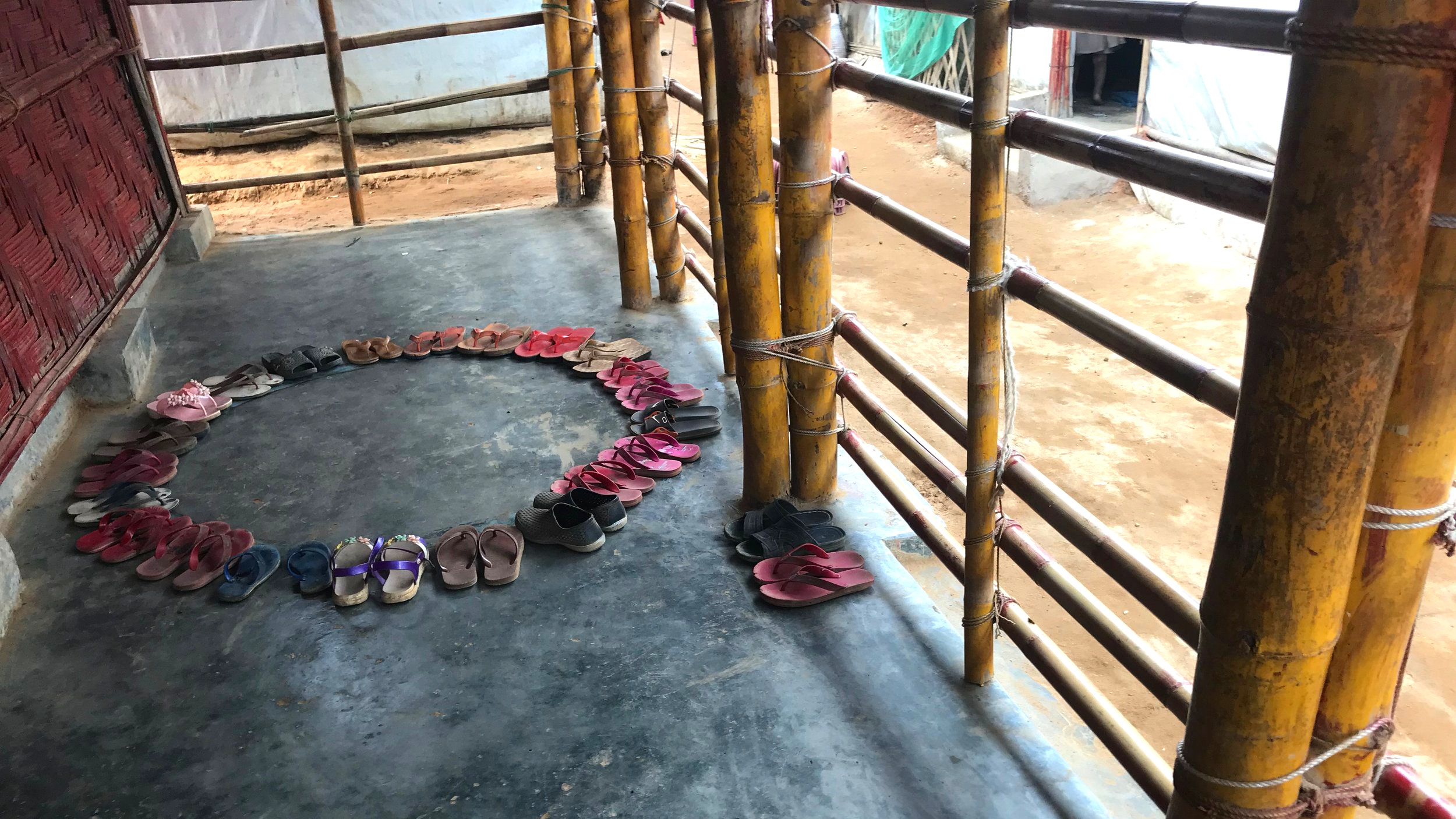English for Rohingya refugees
/A full primary syllabus in English, with teacher training, for around half a million children from Rakhine State in Myanmar living in refugee camps in Bangladesh: this is one of DLA’s most urgent and high speed education projects. The songs, stories, activities and language games are now complete. The first cycle of 144 primary lessons will be delivered next month to UNICEF for production as posters, classroom games, illustrated student books and teacher manuals. There’s secondary content too, and we’ll be producing over 500 more lessons in 2019.
The student cohort has in most cases been out of school for five years, and has endured unspeakable trauma. Our learning design focuses not only on the curriculum requirement of formal language acquisition in English, but also on the healing processes that can come through communication and the sharing of enjoyable content as a group.
The work of teachers in these settings is going to be very hard. They themselves do not know the English language, nor in many cases are they trained as teachers. We are devising their onboarding to the new syllabus as a process in which the teachers themselves will be learning just a few steps ahead of their classes. We are betting that stories, group songs with dances, and games can acquire a life of their own in play and “downtime”. With only a very few hours of school time each day, children will deploy self-learning alongside their classroom learning if they can “own” some fun content in English.
The delivery platform for this English syllabus is currently paper. But we are working on technology with project partners UNICEF and the British Council. The idea is to pilot basic audio equipment in learning centres in the refugee camps, so that teachers can play English language songs and stories for themselves to learn and for the class to follow. A simple MP3 file on a phone or a small battery speaker may be a highly effective piece of revolutionary education technology for these students.
Breakneck speed is not the recommended approach for developing education products. But with thousands of illustrations, activities and lessons to create in just a matter of months, it is a guiding principle for this project. One of our methods for ensuring quality is not lost in the rush is a live 24-hour content production platform - where the authors, who are mostly located in Bangladesh, are assigned templates and materials for developing each lesson. We will be repeating the same production cycle four times throughout 2019 to get even more acceleration with each repetition, and complete the entire Rohingya curriculum.
The contrast with the publishers we normally work for, whose production and launch cycles typically span four or five years, like all contrasts is instructive. I’m reminded of how the need to produce shelter fast for Syrian refugees led to innovations such as Ikea’s award winning flatpack refugee hut and the woven pop-up domes of Abeer Seikaly.
Abeer Seikaly’s Lexus Design Award-winning Weaving a Home project (Image)
The world of education likewise has something to learn when it takes extreme approaches to learning. I’ll be reflecting on this, while discussing emergency learning for disrupted societies in a session at learnit.world the sister-conference alongside London’s BETT on 25 January 2019. Please join the conversation there, or here with DLA directly.



